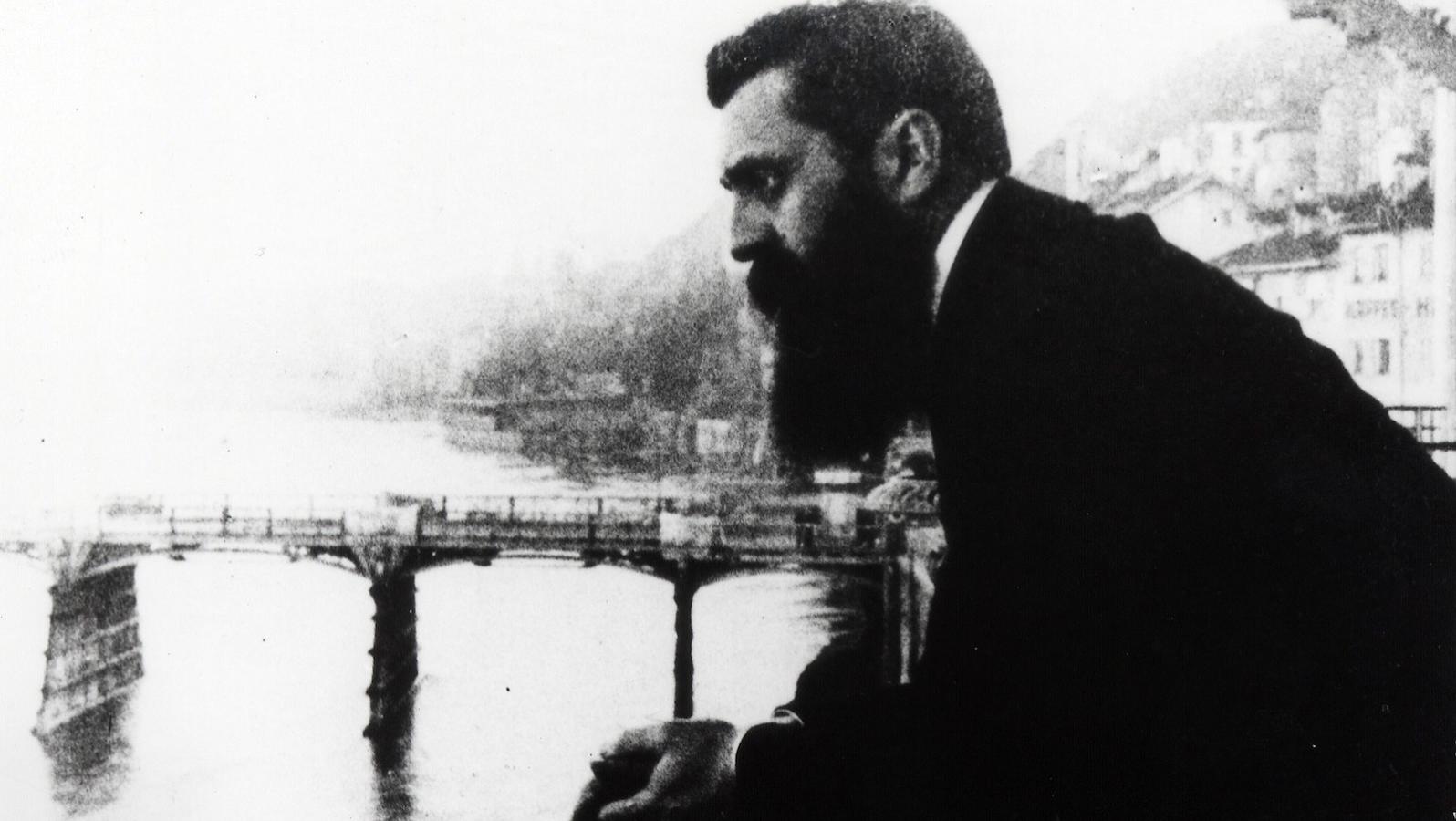“The Jewish question neither a social nor a religious one… It is a national question, and to solve it we must first of all establish it as an international political problem to be discussed and settled by the civilized nations of the world in council. We are a people — one people. Entire branches of Jewry may wither and fall away, but the tree will live.”
T. Herzl, “A Jewish State”
Binyamin Ze'ev (Theodor) Herzl - Austro-Hungarian writer, journalist, political and public figure, founder of the Zionist movement (a political movement whose purpose was to unite and revive the Jewish people in their historical homeland, Eretz Yisrael - the Land of Israel), head of the World Zionist Organization, harbinger of the creation of a Jewish state.
He was born in Budapest in an assimilated Jewish family. His father, Jakob was a wealthy merchant and banker, his mother, Jeanette (nee Diamant) instilled in her son a love of German language and culture. He became keen on literature since childhood, wrote poetry, published reviews of books and plays in a local newspaper. In 1878, after the death of the elder sister, Pauline, the family moved to Vienna, where Theodor entered the law faculty of the University of Vienna. A year after graduating from university, he left jurisprudence, feeling the shortcomings of this profession, and in 1885 he began to publish his own stories, feuilletons and plays.
He tried himself in journalism, worked as a correspondent for the Vienna newspaper Neue Freie Presse in Paris (1891-1895). At this time, the wave of anti-Semitism intensified in France. T. Herzl, who was increasingly interested in the Jewish question, saw its solution in an organized mass movement that would distract the new generation of Jews from Judaism. His views dramatically changed after participating in the Dreyfus affair (1894), the journalistic review of which he led. The conclusion of T. Herzl was amazing: the Jews of Europe need to concentrate on one territory where they will create an independent Jewish state. This belief forever changed the fate of T. Herzl and the entire Jewish people.
With his program of creating a Jewish state, T. Herzl appealed for support to two influential philanthropists of that time - the barons Maurice de Hirsch and Edmond Rothschild, but the negotiations did not bring the desired result, so it was decided to bring this idea to a review of the general public. In early 1896, T. Herzl published the book “A Jewish State - the Experience of a Modern Solution for the Jewish Question”, which called for the creation of an independent Jewish state in Palestine or Argentina. This idea was supported by many members of “Hovevei Zion” and other Zionist organizations in Europe, but the Jews saw Eretz Yisrael as the place to create their state.
At the state level, the first steps to achieve this goal were negotiations with the Ottoman Sultanate regarding permission to create Jewish settlements in Eretz Yisrael and the convening of the First Zionist Congress in Basel (Switzerland) in August 1897. The idea of creating a Jewish congress was not new, but Herzl was the one who managed to bring it to life.
An important result of the Congress was the creation of the Zionist Organization, a political organization headed by T. Herzl. Subsequently, the Jewish people were recognized equal among other nations; the road paved by Herzl led to the adoption of the Balfour Declaration (1917), and finally, the State of Israel was proclaimed (1948), in the Declaration of Independence of which T. Herzl was called “the spiritual father of the Jewish State”. In 1899, on his initiative, the Jewish Colonial Trust was established to purchase land in Palestine.
In 1902, he published the utopian novel “Altneuland” (“The Old New Land”), in which he described the future of the Jewish state and called for the development of the country through science and technology, understanding with the Arab population.
The first steps towards any goal are not easy, especially when the creation of an independent state for the people, who have long lost it, is at stake. A hard struggle with the opposition, keeping the Zionist movement from splitting (proposals for the creation of the Jewish state were not only in Palestine, but also in Cyprus, the Sinai Peninsula, in the el-Arish region, in East Africa (part of the territory of modern Kenya, the so-called Uganda project)) undermined T. Herzl’s health. He died at the medical center in Edlach (now Austria) at the age of 45. By will, T. Herzl was buried next to his father in Vienna, and in 1949 his remains were transferred to the mountain in Jerusalem, which bears his name. In Israel, the day of T. Herzl’s death is a national day of remembrance, streets, parks, museums and the city - Herzliya - are named in his honor.
The Library of Museum “Jewish Memory and Holocaust in Ukraine” invites you to get acquainted with the following publications that illuminate the Theodor Herzl life and work, and some of his works:
- Theodor Herzl, Zionism and the State of Israel.
- Sheps. Theodor Herzl: the man who paved the way for political Zionism. I. Nedava. Vladimir Zhabotinsky: milestones of life. Rostov-On-Don: Phoenix, 1998. 288 p.
- Herzl. The Jewish State. L. Pinsker. Auto-Emancipation. Moscow: TEXT, 2008. 187 p.
- Herzl. Favorite. Reprint from the 1974 edition. Jerusalem: Library- Aliyah, 1990. 255 p.
Zoriana Bondar

